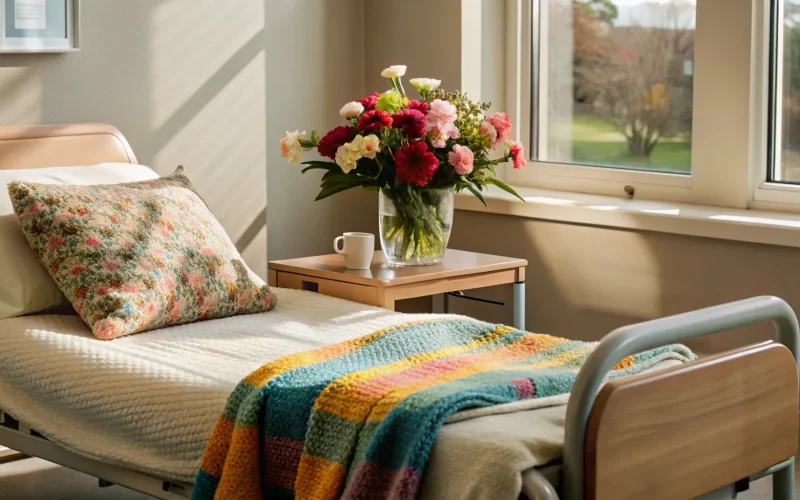For male testicular cancer survivors, dating can feel like navigating a complex game with shifting rules. While societal norms and media often paint dating as easier for women, the reality is that both men and women face unique challenges. However, for survivors, the added layer of dealing with the aftermath of cancer—both physically and emotionally—can make the experience even more daunting. Understanding these dynamics, along with open communication and self-growth, can help foster more fulfilling relationships.
Key Takeaways for Testicular Cancer Survivors
- Perception vs. Reality: Though societal norms suggest dating is easier for women, both men and women face unique, often underestimated challenges. Survivors may experience additional concerns such as body image and self-esteem.
- Emotional Growth: Addressing personal challenges, such as feelings of insecurity or bitterness from past experiences, can help create more positive dating outcomes.
- Communication is Key: Open, honest conversations about one’s experiences, including the cancer journey, can build deeper, more meaningful connections.
The Perception of Dating After Cancer
There’s a common belief that dating is a breeze for some while others face rejection and frustration. For survivors, these feelings may be heightened by concerns about physical changes or fears of rejection related to their medical history. Media portrayals, with their glossy depictions of romance, do little to reflect the real-life challenges that men, particularly survivors, face.
Societal Expectations and Media Influences
Traditional gender roles add pressure to dating, especially for men expected to take the lead. Survivors may feel additional anxiety, wondering how and when to disclose their medical history, or how potential partners will react. Meanwhile, the media often simplifies these dynamics, portraying relationships as effortlessly perfect. Survivors may feel even more isolated if their reality doesn’t match up to these unrealistic depictions.
Unique Challenges for Male Survivors
Emotional Impact: Survivors often grapple with physical and emotional scars that can affect their dating confidence. Issues around body image, fertility, and self-worth may surface, adding layers of complexity to the dating experience.
Disclosure Concerns: Deciding when and how to share personal health history with a new partner can be stressful. Survivors may worry about how potential partners will react to their story or any ongoing health issues.
Overcoming Bitterness and Building Confidence
Dating can sometimes lead to frustration, but for survivors, bitterness may stem from a deeper place. Developing emotional resilience and practicing self-care can help shift this mindset. Here are some ways survivors can build confidence:
- Self-Reflection: Take time to evaluate personal feelings about dating after cancer. Understanding one’s emotions and fears can aid in building confidence.
- Emotional Resilience: Techniques such as mindfulness and therapy can provide the tools to handle the ups and downs of dating, particularly when coupled with past trauma.
Communication and Empathy in Relationships
Open communication is crucial for building trust and intimacy. Survivors may feel uncertain about how much to share or when, but honesty fosters connection. A partner who understands your journey is more likely to offer the empathy and support needed for a healthy relationship.
- Active Listening: Just as survivors need to be heard, their partners do too. Engaging in active listening can deepen connections and build a more supportive relationship.
- Empathy: Being open to understanding a partner’s perspective, and vice versa, can alleviate some of the pressures of dating.
Practical Tips for Male Survivors Navigating Dating
- Focus on Personal Growth: Engaging in activities that promote personal development and self-care can help rebuild confidence. This can make survivors feel more grounded and attractive in their own right.
- Set Realistic Expectations: It’s important to accept that no relationship is perfect, and challenges will arise. Being flexible and adaptable helps create a more fulfilling relationship.
- Build a Support Network: Having a community of friends or fellow survivors to lean on can provide support during tough times. Online groups or in-person communities can offer advice, encouragement, and shared experiences.
Embracing the Dating Journey
While dating after cancer may seem overwhelming, focusing on emotional well-being, personal growth, and communication can transform the experience into something positive. Embrace the journey, knowing that every connection brings you closer to building a meaningful relationship. Whether through community support or personal reflection, remember that dating is not just about finding the right person, but becoming the best version of yourself.
For more information and support, reach out to resources like the Testicular Cancer Foundation, which offers community connections and guidance for survivors seeking meaningful relationships.





